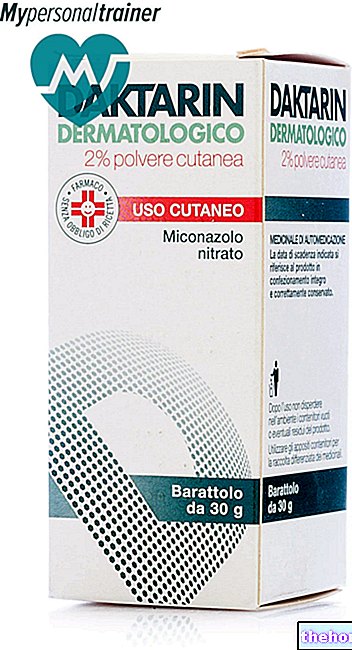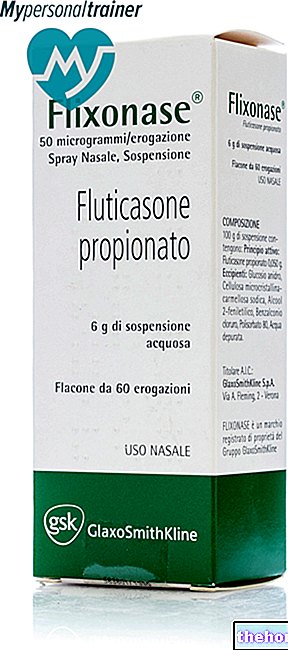Active ingredients: Carnitine (Levocarnitine)
CARNITENE 1 g / 10 mL ORAL SOLUTION
CARNITENE 2 g / 10 mL ORAL SOLUTION
CARNITENE 1.5 g / 5 mL ORAL SOLUTION
CARNITENE 1 g CHEWABLE TABLETS
CARNITENE 1 g / 5 mL SOLUTION FOR INJECTION FOR INTRAVENOUS USE
CARNITENE 2 g / 5 mL SOLUTION FOR INJECTION FOR INTRAVENOUS USE
CARNITENE 1 g / 100 mL SOLUTION FOR INFUSION WITH SODIUM CHLORIDE
CARNITENE 2.5 g / 250 mL SOLUTION FOR INFUSION WITH SODIUM CHLORIDE
CARNITENE 1 g / 100 mL SOLUTION FOR INFUSION WITH GLUCOSE
CARNITENE 2.5 g / 250 mL SOLUTION FOR INFUSION WITH GLUCOSE
Indications Why is Carnitene used? What is it for?
Carnitene contains the active ingredient L-carnitine. Carnitine is a natural constituent of the cells of the human body and plays a fundamental role in the production and transport of energy.
Carnitene is indicated for the treatment of carnitine deficiencies.
Contraindications When Carnitene should not be used
Hypersensitivity to the active substance or to any of the excipients.
Sodium chloride solution for infusion is also contraindicated in patients with hypernatremia and in patients with fluid and salt retention in the body.
Finally, in addition to the contraindications listed above, the solution for infusion with glucose is also contraindicated in diabetic patients.
Precautions for use What you need to know before taking Carnitene
Tell your doctor, who will monitor you closely:
- If you have diabetes and use insulin or oral hypoglycemic agents (medicines taken by mouth that lower blood sugar levels) because Carnitene could cause a further reduction in blood sugar. In these cases, your doctor will have you carry out frequent checks on your blood sugar levels and may change the dose of insulin or oral hypoglycemic agents (see section "How to take Carnitene").
- If you have a predisposition for seizures, treatment with L-carnitine could trigger them; if you already suffer from seizures, the administration of L-carnitine may increase the number and / or severity of the seizures.
- If you have severe kidney problems (severe kidney failure or terminal kidney failure) or if you are on dialysis. In these cases, your doctor will monitor the function of your kidneys during treatment, particularly if it is prolonged over time (see section "How to take Carnitene")
- If you are using medicines that reduce blood clotting (anticoagulants). In these cases, your doctor will prescribe periodic coagulation checks (see section “Other medicines and Carnitene”).
- If you have heart problems (congestive heart failure).
- If you have a disease causing swelling with salt retention.
- If you are using hormonal medicines (corticosteroids or corticotropics).
During treatment with Carnitene, your doctor will have you run tests to check the levels of fluids and salts in your body.
Carnitene does not present the risk of addiction (loss of efficacy of the drug over time) and dependence.
Interactions Which drugs or foods can modify the effect of Carnitene
Tell your doctor if you are using, have recently used or might use any other medicines.
Tell your doctor if you are using medicines that reduce blood clotting (anticoagulants), as in very rare cases blood clotting changes may occur during concomitant treatment with Carnitene. In these cases, your doctor will prescribe periodic coagulation checks (see section “Warnings and precautions”).
Tell your doctor if you are using drugs for epilepsy (valproic acid), antibiotics (containing pivalic acid, cephalosporins) drugs for the treatment of tumors (cisplatin, carboplatin and ifosfamide) because they can reduce the amount of carnitene in the blood.
Warnings It is important to know that:
Carnitene 1.5 g / 5 ml oral solution contains sucrose, sorbitol, methyl para-hydroxybenzoate and propyl para-hydroxybenzoate
Carnitene 1.5 g / 5 ml oral solution contains sucrose and sorbitol, if you have been told by your doctor that you have an intolerance to some sugars, contact your doctor before taking this medicine. Carnitene 1.5 g / 5 ml oral solution contains methyl para-hydroxybenzoate and propyl para-hydroxybenzoate, which can cause allergic reactions (possibly delayed).
Carnitene 1 g chewable tablets contains sucrose If you have been told by your doctor that you have an intolerance to some sugars, contact your doctor before taking this medicinal product. This medicine contains 1.8 g of sucrose per dose. To be taken into consideration in people with diabetes mellitus. It can be bad for your teeth.
Carnitene 1 g / 100 ml solution for infusion with sodium chloride contains sodium
This medicinal product contains 15.2 mmol (or 350 mg) sodium per 100 ml bag. To be taken into consideration in people with reduced kidney function or who follow a low sodium diet.
Carnitene 2.5 g / 250 ml solution for infusion with sodium chloride contains sodium
This medicine contains 38 mmol (or 875 mg) sodium per 250 ml bag. To be taken into consideration in people with reduced kidney function or who follow a low sodium diet.
Carnitene 1 g / 100 ml solution for infusion with glucose contains glucose
This medicine contains 5.5 g of glucose per dose (100 ml bag). To be taken into consideration in people with diabetes mellitus.
Carnitene 2.5 g / 250 ml solution for infusion with glucose contains glucose
This medicinal product contains 13.75 g of glucose per dose (250 ml bag). To be taken into consideration in people with diabetes mellitus.
Fertility, pregnancy and breastfeeding
Carnitene can be used during pregnancy if your doctor thinks the benefit to you outweighs the potential risks to the fetus.
L-carnitine is a normal component of breast milk. Carnitene can be used during breastfeeding if your doctor believes that the benefit for you outweighs the potential risks for the baby.
Carnitene has no adverse effects on fertility.
Driving and using machines
Carnitene does not affect the ability to drive or use machines.
Dosage and method of use How to use Carnitene: Dosage
Oral solution - Chewable tablets
Primary deficiencies and secondary deficiencies in genetic diseases
The oral daily dose depends on age and weight: from 0 to 2 years 150 mg per kg of body weight are recommended; from 2 to 6 years 100 mg per kg; from 6 to 12 years 75 mg per kg.
Over 12 years and in adults 2 - 4 grams according to the severity of the disease and the doctor's judgment.
Deficiencies secondary to hemodialysis
The oral solution should only be taken after diluting it. Pour the oral solution contained in the single-dose container into a glass of water before drinking it or making your child drink it.
If you have severe kidney problems oral carnitene treatment should not be prolonged and in high doses.
If you are elderly, no special precautions or changes in the Carnitene dosage are necessary
If you have diabetes and use insulin or medicines taken by mouth that lower your blood sugar levels, Carnitene may cause your blood sugar to drop further and your doctor will therefore have your blood sugar checked frequently and may change the dose of insulin or oral hypoglycemic agents (see section “Warnings and precautions”).
Solution for injection for intravenous use - Solution for infusion
Deficiencies secondary to hemodialysis
The recommended dose is 2 grams administered slowly into a vein at the end of dialysis.
The 2.5 g dose can be used in patients who have been on dialysis for more than 1 year.
5 mL vials
Administration into a vein must be performed slowly over 2-3 minutes.
If you are elderly, no special precautions or changes in the Carnitene dosage are necessary.
If you have diabetes and use insulin or medicines taken by mouth that lower your blood sugar levels, Carnitene could cause your blood sugar to drop further and your doctor will therefore have your blood sugar checked frequently and may change your blood sugar levels. the dose of insulin or oral hypoglycemic agents (see section “Warnings and precautions”).
100 mL and 250 mL bags
Administration by infusion should be done at a controlled rate by administering 3 ml of solution every minute. Administration will require:
- About 30 minutes for bags containing 100 ml of solution;
- Approximately 1 hour and 20 minutes for the bags containing 250 ml of solution.
If you are elderly, no special precautions or changes in the Carnitene dosage are necessary. If you have diabetes and use insulin or medicines taken by mouth that lower your blood sugar levels, Carnitene may cause your blood sugar to drop further and your doctor will therefore have your blood sugar checked frequently and may change the dose of insulin or oral hypoglycemic agents (see section “Warnings and precautions”).
If you take more Carnitene than you should
In case of accidental ingestion of an overdose of Carnitene, notify your doctor immediately or go to the nearest hospital. An overdose of Carnitene can cause diarrhea.
If you forget to take Carnitene
Do not take a double dose to make up for a forgotten dose.
If you stop taking Carnitene
If you have any further questions on the use of this medicine, ask your doctor or pharmacist.
Side Effects What are the side effects of Carnitene
Like all medicines, this medicine can cause side effects, although not everybody gets them.
Common side effects (may affect up to 1 in 10 people)
- He retched
- Nausea
- Diarrhea
- Pain in the abdomen
Uncommon side effects (may affect up to 1 in 100 people)
- Headache
- Increased or high blood pressure
- Low blood pressure
- Alteration of taste
- Difficulty digesting
- Dry mouth
- Fishy smell in urine, breath and sweat *
- Sudden and involuntary muscle contraction (muscle spasms)
- Chest pain
- Feeling strange
- Fever
- Injection site reaction
Very rare side effects (may affect up to 1 in 10,000 people)
- Changes in blood clotting **
Undesirable effects with frequency not known (frequency cannot be estimated from the available data)
- Convulsions ***
- Dizziness
- Irregular heartbeat (palpitations)
- Difficulty in breathing
- Itching
- Rash on the skin
- Myasthenia (disease characterized by muscle weakness) ****
- Muscle tension
* This occurs in patients with severe kidney problems or on dialysis, due to the accumulation of L-carnitine metabolites in the blood
** In patients concurrently using medicines that reduce blood clotting (anticoagulants)
*** In patients with or without prior convulsive or predisposed episodes
**** In patients with end stage kidney failure.
Reporting of side effects
If you get any side effects, talk to your doctor or pharmacist. This includes any possible side effects not listed in this leaflet.You can also report side effects directly via the national reporting system at http://www.agenziafarmaco.gov.it/it/responsabili. By reporting side effects you can help provide more information on the safety of this medicine.
Expiry and Retention
See the expiry date printed on the package. The expiry date indicated refers to the product in intact packaging, correctly stored.
Keep this medicine out of the sight and reach of children.
Do not use this medicine after the expiry date which is stated on the package after “EXP”. The expiry date refers to the last day of that month.
Do not throw any medicines via wastewater or household waste. Ask your pharmacist how to throw away medicines you no longer use. This will help protect the environment.
Carnitene solution for infusion with glucose
Do not store above 25 ° C.
Composition
CARNITENE 1 g / 10 mL ORAL SOLUTION
A single-dose container contains:
Active ingredient: L-carnitine internal salt 1 g.
Excipients: d-l malic acid, sodium benzoate, sodium saccharin, purified water.
CARNITENE 2 g / 10 mL ORAL SOLUTION
A single-dose container contains:
Active ingredient: L-carnitine internal salt 2 g.
Excipients: d-l malic acid, sodium benzoate, sodium saccharin, pineapple powder flavor, purified water.
CARNITENE 1.5 g / 5 mL ORAL SOLUTION
100 mL of solution contain:
Active ingredient: L-carnitine internal salt 30 g.
Excipients: sucrose, 70 percent sorbitol (not crystallizable), sodium methyl para-hydroxybenzoate, sodium propyl para-hydroxybenzoate, cherry flavor, black cherry flavor, purified water.
CARNITENE 1 g CHEWABLE TABLETS
One chewable tablet contains:
Active ingredient: L-carnitine internal salt 1 g.
Excipients: mint flavor powder, licorice powder flavor, sucrose, magnesium stearate.
CARNITENE 1 g / 5 mL SOLUTION FOR INJECTION FOR INTRAVENOUS USE
One vial contains:
Active ingredient: L-carnitine internal salt 1 g.
Excipients: water for injections.
CARNITENE 2 g / 5 mL SOLUTION FOR INJECTION FOR INTRAVENOUS USE
One vial contains:
Active ingredient: L-carnitine internal salt 2 g.
Excipients: water for injections.
CARNITENE 1 g / 100 mL SOLUTION FOR INFUSION WITH SODIUM CHLORIDE
Each 100 mL bag contains:
Active ingredient: L-carnitine internal salt 1 g.
Excipients: sodium chloride, diluted hydrochloric acid, water for injections.
CARNITENE 2.5 g / 250 mL SOLUTION FOR INFUSION WITH SODIUM CHLORIDE
Each 250 mL bag contains:
Active ingredient: L-carnitine internal salt 2.5 g.
Excipients: sodium chloride, diluted hydrochloric acid, water for injections.
CARNITENE 1 g / 100 mL SOLUTION FOR INFUSION WITH GLUCOSE
Each 100 mL bag contains:
Active ingredient: L-carnitine internal salt 1.0 g.
Excipients: glucose monohydrate, water for injections.
CARNITENE 2.5 g / 250 mL SOLUTION FOR INFUSION WITH GLUCOSE
Each 250 mL bag contains:
Active ingredient: L-carnitine internal salt 2.5 g.
Excipients: glucose monohydrate, water for injections
Pharmaceutical Forms and Content
Oral solution, solution for injection for intravenous use, chewable tablets, solution for infusion.
CARNITENE 1 g / 10 mL oral solution - 10 single-dose containers of 10 mL
CARNITENE 2 g / 10 mL oral solution - 10 single-dose containers of 10 mL
CARNITENE 1.5 g / 5 mL oral solution - 20 mL bottle
CARNITENE 1 g chewable tablets - 10 chewable tablets in blister packs
CARNITENE 1 g / 5 mL solution for injection for intravenous use - 5 ampoules of 5 mL
CARNITENE 2 g / 5 mL solution for injection for intravenous use - 5 ampoules of 5 mL
CARNITENE 1 g / 100 mL solution for infusion with sodium chloride - 100 mL bag
CARNITENE 2.5 g / 250 mL solution for infusion with sodium chloride - 250 mL bag
CARNITENE 1 g / 100 mL solution for infusion with glucose - 100 mL bag
CARNITENE 2.5 g / 250 mL solution for infusion with glucose - 250 mL bag
Source Package Leaflet: AIFA (Italian Medicines Agency). Content published in January 2016. The information present may not be up-to-date.
To have access to the most up-to-date version, it is advisable to access the AIFA (Italian Medicines Agency) website. Disclaimer and useful information.
01.0 NAME OF THE MEDICINAL PRODUCT
CARNITENE
02.0 QUALITATIVE AND QUANTITATIVE COMPOSITION
CARNITENE 1 g / 5 mL solution for injection for intravenous use
One vial contains:
active ingredient: L-carnitine internal salt 1.00 g
CARNITENE 2 g / 5 mL solution for injection for intravenous use
One vial contains:
active ingredient: L-carnitine internal salt 2.00 g
CARNITENE 1 g / 10 mL oral solution
A single-dose container contains:
active ingredient: L-carnitine internal salt 1.00 g
CARNITENE 2 g / 10 mL oral solution
A single-dose container contains:
active ingredient: L-carnitine internal salt 2.00 g
CARNITENE 1.5 g / 5 mL oral solution
100 ml of solution contain:
active ingredient: L-carnitine internal salt g 30.
CARNITENE 1 g chewable tablets
One chewable tablet contains:
active ingredient: L-carnitine internal salt 1.00 g
CARNITENE 1 g / 100 mL solution for infusion with sodium chloride
One bag contains: active component: L-carnitine internal salt g 1.00.
CARNITENE 2.5 g / 250 mL solution for infusion with sodium chloride
One bag contains: active component: L-carnitine internal salt g 2.50.
CARNITENE 1 g / 100 mL solution for infusion with glucose
One bag contains: active component: L-carnitine internal salt g 1.00.
CARNITENE 2.5 g / 250 mL solution for infusion with glucose
One bag contains: active component: L-carnitine internal salt g 2.50.
For excipients see 6.1
03.0 PHARMACEUTICAL FORM
Solution for injection, oral solution, chewable tablets, solution for infusion.
04.0 CLINICAL INFORMATION
04.1 Therapeutic indications
Primary and secondary carnitine deficiencies.
04.2 Posology and method of administration
Oral solution - chewable tablets:
Primary deficiencies and secondary deficiencies in genetic diseases
The oral daily dose depends on age and weight; from 0 to 2 years 150 mg per kg of body weight are recommended, from 2 to 6 years 100 mg per kg, from 6 to 12 years 75 mg per kg; over 12 years and in adults 2 -4 grams according to the severity of the disease and the doctor's judgment.
Deficiencies secondary to hemodialysis
2 - 4 grams per day.
The oral solutions must be taken only after dilution, the one in the single-dose containers must be diluted in a glass of water.
Solution for injection for intravenous use - Solution for infusion
Deficiencies secondary to hemodialysis
2 grams at the end of the dialysis session administered slowly intravenously.
The 2.5 g dosage may be indicated in patients with dialysis age greater than 1 year.
5 ml vials
Intravenous administration should be performed slowly (2-3 minutes).
100 ml and 250 ml bags
Administration by infusion should be 3 ml per minute, equal to approximately 30 minutes for 100 ml bags and 1 hour and 20 minutes for 250 ml bags.
04.3 Contraindications
Hypersensitivity to the active substance or to any of the excipients.
Sodium chloride solution for infusion is contraindicated in patients with hypernatremia and hydrosaline plethora.
The solution for infusion with glucose and is contraindicated in diabetic patients.
04.4 Special warnings and appropriate precautions for use
The administration of L-carnitine in diabetic patients on insulin treatment or with oral hypoglycemic agents, improving the use of glucose, could lead to hypoglycemia phenomena. Therefore in these subjects the glycaemia must be kept under frequent control in order to promptly adjust the blood sugar level. hypoglycemic therapy.
Intravenous administration should be performed slowly (2-3 minutes).
CARNITENE solution for infusion should be used with great caution in patients with congestive heart failure, severe renal insufficiency and in clinical states of edema with saline retention, in patients receiving corticosteroid or corticotropin drugs. Continuous administration without the addition of potassium may cause hypokalaemia.
Monitor fluid balance and electrolytes.
The safety and efficacy of oral levocarnitine have not been demonstrated in patients with renal insufficiency. Chronic oral administration of high doses of levocarnitine in patients with severe renal impairment or end stage renal insufficiency (ESRD) and dialysis may induce an accumulation of the potentially toxic metabolites trimethylamine (TMA) and trimethylamine-N-oxide (TMAO), as these metabolites are normally excreted in the urine.
This phenomenon does not occur with intravenous administration (see 5.2).
Since L-carnitine is a physiological product, it does not present any risk of addiction or dependence.
The oral solution (1.5 g / 5 mL - 20 mL bottle) and chewable tablets contain sucrose: these medicines should be used with caution in patients with rare hereditary problems of fructose intolerance, glucose-galactose malabsorption, or by insufficiency of sucrase-isomaltates.
Furthermore, this should be taken into account in diabetic patients and in those subjected to low-calorie diets.
The oral solution (1.5g / 5ml - 20ml bottle) also contains sorbitol: this medicine should be used with caution in patients with rare inherited problems of fructose intolerance.
Finally, the oral solution (1.5 g / 5 ml - 20 ml bottle) contains para-hydroxy-benzoates as preservatives: these can cause allergic reactions (even delayed).
04.5 Interactions with other medicinal products and other forms of interaction
There are no known interactions between L-carnitine and other drugs.
04.6 Pregnancy and lactation
The product can be used both during pregnancy and during lactation.
04.7 Effects on ability to drive and use machines
L-carnitine does not affect the ability to drive or use machines.
04.8 Undesirable effects
Mild gastrointestinal disturbances reported after oral administration. Mild miastemic symptoms have been reported in uremic patients.
Cases of seizures have been reported in patients with or without a history of seizure activity who received oral or intravenous L-carnitine.
04.9 Overdose
There are no known toxic manifestations of overdose with L-carnitine.
05.0 PHARMACOLOGICAL PROPERTIES
05.1 Pharmacodynamic properties
Pharmacotherapeutic group: Mitochondrial function agonist.
ATC: A16AA01
Carnitine is a natural constituent of cells in which it plays a fundamental role in the production and transport of energy.
Carnitine is, in fact, the only non-vicariable factor for the penetration of long-chain fatty acids into the mitochondrion and their initiation to beta-oxidation; it also controls the transport of the energy produced by the mitochondrion to the cytoplasm through the modulation of the enzyme adenine-nucleotide-translocase.
The highest tissue concentration of carnitine is in the skeletal muscles and in the myocardium; the latter, although it is capable of using various substrates for energy purposes, normally uses fatty acids.
Therefore Carnitine plays an essential role in cardiac metabolism as the oxidation of fatty acids is strictly dependent on the presence of an adequate quantity of the substance.
Experimental studies have shown that under various stress conditions, acute ischemia, diphtheria myocarditis, a lowering of myocardial tissue levels of Carnitine can be demonstrated. Many animal models have confirmed a positive activity of carnitine in various artificially induced alterations of cardiac function: acute and chronic ischemia, states of heart failure, heart failure due to diphtheria myocarditis, cardiotoxicity due to drugs (propranolol, adriamycin).
L-Carnitine has been shown to be therapeutically effective in the following pathologies:
a) primary carnitine deficiency characterized by phenotypes such as myopathies with lipid accumulation, hepatic encephalopathy type Reyès syndrome and / or progressive dilated cardiomyopathy;
b) secondary carnitine deficiencies in patients with organic acidurias on a genetic basis such as propionic acidemia, methyl-malonic aciduria, isovaleric acidemia and in patients with genetic defects of beta-oxidation. In such situations the secondary deficit occurs in the form of esters with fatty acids. In fact, the endogenous L-Carnitine acts as a "buffer" against various fatty acids that cannot be metabolized;
c) secondary carnitine deficiencies in patients undergoing intermittent hemodialysis. Muscle depletion of L-Carnitine is positively correlated with the loss of the substance in the dialysis fluid.
Muscle symptoms typically present in these patients after hemodialysis sessions improved with exogenous treatment.
05.2 Pharmacokinetic properties
L-carnitine, administered intravenously, is eliminated mainly by the kidney; the metabolic component is absolutely negligible except for the reversible transformation of L-carnitine into its esters.
On the contrary, after oral administration, L-carnitine is degraded by the intestinal bacterial flora into trimethylamine (TMA) and γ-butyrobetaine. Since the amount of drug that reaches the systemic circulation unchanged is about 10-20%, it is estimated that intestinal metabolism is responsible for the elimination of about 80-90% of an oral dose of L-carnitine.
The products of intestinal metabolism, γ-butyrobetaine and TMA are both absorbed. The γ-butyrobetaine is found unchanged in the urine while the TMA is transformed by hepatic metabolism into trimethylamine N-oxide (TMAO) which is found in the urine together with small quantities of unchanged TMA.
In subjects with severely impaired renal function or on dialysis, chronic oral administration of L-carnitine can result in accumulation of TMA and TMAO in the blood with consequent trimethylaminuria, a pathological condition characterized by a strong "fish odor" present in the urine, "the patient's breath and sweat.
05.3 Preclinical safety data
Acute toxicity tests carried out on the rat and Mus musculus for 7 consecutive days have made it possible to establish for the LD50 a dosage higher than 8000 mg / kg for the oral route and 4000 mg / kg for the injection.
Research on rats and dogs with continuous oral treatment for 12 months did not result in any death or significant changes in the functionality and histological structures of the main organs. Teratogenic studies have shown that L-Carnitine does not cause harmful effects on the pregnant woman, on gestation and on embryo-fetal development.
06.0 PHARMACEUTICAL INFORMATION
06.1 Excipients
Solution for injection for intravenous use
water for injections
1 g / 10 mL oral solution:
d-l malic acid, sodium benzoate, sodium saccharin, purified water.
2 g / 10 mL oral solution:
d-l malic acid, sodium benzoate, sodium saccharin, pineapple powder flavor, purified water.
1.5 g / 5 mL oral solution:
sucrose, 70 percent sorbitol (not crystallizable), sodium methyl para-hydroxybenzoate, sodium propyl para-hydroxybenzoate, cherry flavor, black cherry flavor, purified water.
Chewable tablets
mint flavor powder, licorice powder flavor, sucrose, magnesium stearate.
Solution for infusion with sodium chloride
sodium chloride, diluted hydrochloric acid, water p.p. injectable
Solution for infusion with glucose
glucose monohydrate, water p.p. injectable
06.2 Incompatibility
There are no known incompatibilities of L-carnitine with other drugs.
06.3 Period of validity
CARNITENE 1 g / 5 mL solution for injection for intravenous use: 4 years
CARNITENE 2 g / 5 mL solution for injection for intravenous use: 3 years
CARNITENE 1 g / 10 mL oral solution: 5 years
CARNITENE 2 g / 10 mL oral solution: 3 years
CARNITENE 1.5 g / 5 mL oral solution: 5 years
CARNITENE 1 g chewable tablets: 3 years
CARNITENE 1 g / 100 mL solution for infusion with sodium chloride: 2 years
CARNITENE 2.5 g / 250 mL solution for infusion with sodium chloride: 2 years
CARNITENE 1 g / 100 mL solution for infusion with glucose: 1 year
CARNITENE 2.5 g / 250 mL solution for infusion with glucose: 1 year
06.4 Special precautions for storage
There are no special storage precautions to be observed.
Solution for infusion with glucose: Do not store above 25 ° C.
06.5 Nature of the immediate packaging and contents of the package
CARNITENE 1 g / 5 mL solution for injection for intravenous use:
pack of 5 vials of 5 ml of dark glass
CARNITENE 2 g / 5 mL solution for injection for intravenous use:
pack of 5 vials of 5 ml of dark glass
CARNITENE 1 g / 10 ml oral solution:
pack of 10 single-dose containers of 10 ml
CARNITENE 2 g / 10 ml oral solution:
pack of 10 single-dose containers of 10 ml
CARNITENE 1 g chewable tablets: 10 chewable tablets blister
CARNITENE 1.5 g / 5 ml oral solution:
pack of one bottle of 20 ml of dark glass
CARNITENE 1 g / 100 mL solution for infusion with sodium chloride:
PVC bag with one tube, "vial" closure in polycarbonate, with chlorine butyl rubber stopper and aluminum cap
CARNITENE 2.5 g / 250 mL solution for infusion with sodium chloride:
PVC bag with one tube, "vial" closure in polycarbonate, with chlorine butyl rubber stopper and aluminum cap
CARNITENE 1 g / 100 mL glucose solution for infusion with glucose:
PVC bag with one tube, "vial" closure in polycarbonate, with chlorine butyl rubber stopper and aluminum cap
CARNITENE 2.5 g / 250 mL glucose solution for infusion with glucose:
PVC bag with one tube, "vial" closure in polycarbonate, with chlorine butyl rubber stopper and aluminum cap
Not all pack sizes may be marketed.
06.6 Instructions for use and handling
Unused medicine and waste derived from this medicine must be disposed of in accordance with local regulations.
07.0 MARKETING AUTHORIZATION HOLDER
Sigma-Tau Industrie Farmaceutiche Riunite S.p.A.
Viale Shakespeare, 47 - 00144 Rome
08.0 MARKETING AUTHORIZATION NUMBER
CARNITENE 1 g / 5 mL solution for injection for intravenous use - 5 ampoules of 5 mL AIC n. 018610028
CARNITENE 2 g / 5 mL solution for injection for intravenous use - 5 ampoules of 5 mL AIC n. 018610093
CARNITENE 1 g / 10 mL oral solution - 10 single-dose containers of 10 ml - AIC n. 018610042
CARNITENE 2 g / 10 mL oral solution - 10 single-dose containers of 10 ml - AIC n. 018610079
CARNITENE 1.5 g / 5 mL oral solution - 20 mL bottle AIC n. 018610016
CARNITENE 1 g chewable tablets - 10 tablets AIC n. 018610067
CARNITENE 1 g / 100 mL solution for infusion with sodium chloride - 100 mL bag AIC n. 018610105
CARNITENE 2.5 g / 250 mL solution for infusion with sodium chloride - 250 mg bag AIC n. 018610117
CARNITENE 1 g / 100 mL solution for infusion with glucose - 100 mL bag AIC n.018610131
CARNITENE 2.5 g / 250 mL solution for infusion with glucose - 250 mL bag AIC n. 018610143
09.0 DATE OF FIRST AUTHORIZATION OR RENEWAL OF THE AUTHORIZATION
Authorization:
CARNITENE 1 g / 5 mL solution for injection for intravenous use: June 1979
CARNITENE 2 g / 5 mL solution for injection for intravenous use: March 1993
CARNITENE 1 g / 10 mL oral solution: May 1982
CARNITENE 2 g / 10 mL oral solution: March 1993
CARNITENE 1.5 g / 5 mL oral solution: September 1969
CARNITENE 1 g chewable tablets: July 1984
CARNITENE 1 g / 100 mL solution for infusion with sodium chloride: May 2007
CARNITENE 2.5 g / 250 mL solution for infusion with sodium chloride: May 2007
CARNITENE 1 g / 100 mL solution for infusion with glucose: June 2011
CARNITENE 2.5 g / 250 mL solution for infusion with glucose: June 2011
Renewal: June 2010
10.0 DATE OF REVISION OF THE TEXT
June 2011




























